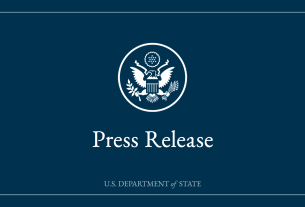TRT: 2:45
SOURCE: UNITAID
RESTRICTIONS: PLEASE CHECK SHOTLIST FOR DETAILS
LANGUAGE: ENGLISH, KINYARWANDA, NATS
DATELINE: 2 FEBRUARY 2023, GENEVA, SWITZERLAND / FILE
SHOTLIST:
FILE – CREDIT ON SCREEN UNITAID AND THE CLINTON HEALTH ACCESS INITIATIVE (CHAI) – REMERA HEALTH CENTER IN KIGALI, RWANDA
1. Close up, a ledger reads “Remera Health Facility”
2. Close up, women are attending a training session at the Remera Health Center in Kigali, Rwanda.
3. Med shot, nurse Antoinette MUKAMWIZA is delivering a presentation on cervical cancer to a group of women at the Remera Health Center, Kigali, Rwanda.
2 FEBRUARY 2023, GENEVA, SWITZERLAND – CREDIT ON SCREEN UNITAID AND THE CLINTON HEALTH ACCESS INITIATIVE (CHAI)
4. SOUNDBITE (English) Tenu Avafia, Deputy Executive Director, UNITAID:
“Cervical cancer is highly preventable when women have access to early screening and treatment. The challenge is that, in low-income contexts, where access to these services is rare, [cervical] cancer rates are nearly double what they are in high-income countries. Even worse, we see that nine out of ten deaths from cervical cancer occur among women in low-income contexts.”
CREDIT ON SCREEN – UNITAID AND THE CLINTON HEALTH ACCESS INITIATIVE (CHAI) – REMERA HEALTH CENTER IN KIGALI, RWANDA
5. Med shot, women are attending a training session at the Remera Health Center in Kigali, Rwanda.
6. Med shot, nurse Antoinette Mukamwiza is delivering a presentation on cervical cancer to a group of women at the Remera Health Center, Kigali, Rwanda.
2 FEBRUARY 2023, GENEVA, SWITZERLAND – CREDIT ON SCREEN UNITAID AND THE CLINTON HEALTH ACCESS INITIATIVE (CHAI)
7. SOUNDBITE (English) Tenu Avafia, Deputy Executive Director, UNITAID:
“Unitaid is working with its partners to advance a package of tools that are adapted to the health needs of these countries. Our programmes in 7 countries are already showing that it is possible to achieve the WHO [World Health Organization] targets for cervical cancer elimination in low-income contexts. And, if we were to scale up these solutions, we would help to avert the progression to cancer for women worldwide.”
CREDIT ON SCREEN – UNITAID AND THE CLINTON HEALTH ACCESS INITIATIVE (CHAI) – REMERA HEALTH CENTER IN KIGALI, RWANDA
8. Med shot, a nurse is delivering a presentation on cervical cancer to a group of women at the Remera Health Center, Kigali, Rwanda.
9. SOUNDBITE (KINYARWANDA) Antoinette Mukamwiza, Nurse, Remera Health Center:
“This test is confidential. Women feel at ease when conducting their own test, and this helps in speeding up our work because two or three women can test themselves at the same time while I do the registry work. It helps me receive a lot of patients in a short period of time.”
10. Various shots, a nurse is taking notes while discussing with a patient at the Remera Health Center, Kigali, Rwanda, before opening a suitcase and pulling out a thermal ablation device.
STORYLINE:
Unitaid warns that inadequate access keeps cervical cancer prevention out of reach for millions.
4th of February marks World Cancer Day, which this year aims to raise awareness and inspire action to close the care gap.
Though cancer does not discriminate, inequities caused by income, education, gender, and ethnicity, among many others, create significant barriers to services and skew the burden of disease.
Cervical cancer is particularly stark example. Though highly preventable and curable, cervical cancer remains one of the most common cancers and causes of cancer-related death worldwide.
In low-and middle-income countries (LMICs), where access to early screening and treatment is scarce, rates of cervical cancer are nearly double those of high-income countries. Worse still, nine out of ten deaths from cervical cancer occur in women in LMICs.
Almost all cervical cancer cases are linked to infection with human papillomaviruses (HPV), an extremely common virus transmitted through sexual contact. Although most HPV infections resolve spontaneously, persistent infection can cause cervical cancer in women when left untreated.
Tools and methods used to successfully avert the majority of cervical cancer cases in high-income countries are poorly adapted for use in resource-limited settings, leaving women in these countries without access to life-saving prevention.
Global health agency Unitaid and its partners have developed and implemented an effective package of cervical cancer prevention tools and strategies that respond to the needs of health services in these countries.
Project sites in Burkina Faso, Côte d’Ivoire, Malawi, Nigeria, Philippines, Rwanda and Senegal are already using this package of tools to exceed the World Health Organization’s (WHO) elimination target to treat 90% of all women identified with pre-cancerous lesions by 2030.
New HPV tests replace a far less accurate, subjective screening method based on visual inspection of the cervix. More than 50% of the women reached through the programmes in the seven countries have been screened with an HPV test so far.
Hand-held, battery powered thermal ablation devices allow for rapid treatment of pre-cancerous lesions in primary health centers. The devices replace heavy cryotherapy containers that require compressed gap and reduce treatment time to one to two minutes, compared to 15.
Pricing agreements secured through Unitaid investments have reduced the cost of HPV screening by one-third and cut the price of thermal ablation devices by half, making treatment ten times less expensive than with cryotherapy.
In addition, self-sampling techniques which circumvent pelvic examinations make screening acceptable to more women.
These preventive care solutions for identifying and treating cervical pre-cancer are being integrated into existing health structures to increase coverage and awareness. Implemented widely, these solutions can achieve the WHO target for pre-cancer treatment and contribute to averting nearly 65 million deaths from cervical cancer over the next century.



